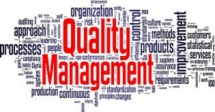|
|
Liquid Natural Gas (LNG) Plant Safety Program
NGN 445,000Get 5.00% off
|
Venue: Lagos
Other Dates
| Venue | Date | Fee | |
|---|---|---|---|
| Lagos, Lagos State, Nigeria | 05 - 08 Aug, 2025 | NGN445000 | |
| Abuja, Abuja FCT, Nigeria | 04 - 07 Nov, 2025 | NGN445000 |
LNG Plant Safety Training is compulsory for those responsible for safety in the LNG industry. The course is specifically designed for those responsible for the care, use or incident control of LNG Plants and Terminals.
The training course will exclusively cover LNG Plant, Terminal and Marine Safety for LNG Operations. Including LNG Plant Safety, Safe loading and Unloading of LNG at Terminals, LNG on Tankers, Chemical and LNG Gas Plants and Carriers, the management of ship to shore safety, and the safety role and responsibilities of individuals operating within the LNG industry.
This training course will highlight:
- Chemical and physical properties of highly flammable fuels
- Working of LNG-driven engines and fuel systems
- Safe performance and monitoring of all work relating to the fuel
- Planning and monitoring of safe storage and bunkering of the fuel
- Monitoring and supervising the adherence to legal requirements
- Taking precautionary measures to avoid risks
- Application of health and safety measures
- Knowledge of prevention and control of fire extinguishing systems
- Taking precautionary measures to prevent environmental contamination following release of the fuel
Target Audience
Who is this Training Course for?
All personnel responsible for:
- LNG plant, terminal and marine safety
- LNG loading
- Discharging and custody transfer
- Handling LNG cargoes
- LNG plant operators
- LNG handlers
- LNG vessel owners and operators
- LNG plant safety auditors
- Surveyors and inspectors
- LNG marine superintendents
- Those involved in the Liquid and Gas Facility/ Tanker and LNG Cargo transportation business including:
- All Liquid/Gas and LNG suppliers, traders and distributors
- LNG Plant and Terminal HSE, LNG Ship owners and operators
- LNG Superintendents and Safety officers
- LNG Technical Engineers and operations executives
- LNG Charterers and traders
- LNG Ship brokers
- LNG Port and terminal operators
- LNG P and I club and marine insurance
Daily Agenda
Day One: ISGOTT/MTCOT/SAFETY – LNG
- Assessment of delegates current LNG knowledge and understanding LNG Plant and Terminals.
- Specific LNG safety criteria and areas that need in depth coverage after assessment of delegates knowledge base
- Asking general questions related to LNG duties, this allows customizing the LNG safety training program to ascertain optimum benefit to the delegates
- International Safety Guide for Oil Tankers and Terminals (ISGOTT) new Edition
- LNG Safety procedures and recommendations for tanker and terminal personnel
- Oil companies International Marine Forum (OCIMF)
- LNG Marine Terminal Competence and Training Guide (MTCOT)
- Critical LNG Load Master – Types of Liquid/Gas carriers and LNG Tanks
- LNG ESD 1 and 2 - Technical comparisons and LNG Containment systems
- Critical LNG – Applicable safety codes and Charterers’ requirements
- International Gas Code
- LNG Plants and Tank Type
- LNG Vessel types
- Safety Management of the LNG Tanker and Terminal/Plant Interface (ISGOTT)
LNG Communications Procedures and Precautions
- LNG Pre-berthing exchange of information
- Critical LNG Information transfer from tanker to terminal
- Critical Information from LNG terminal to tanker
- LNG Cargo loads
- LNG Load Master discharge plan
- What is LNG? Specific Safety - Hazards and Risks
- Screening / Compatibility Studies of participating LNG
- LNG Ship compatibility and OPTIMOOR
- Criteria in selecting transfer area and Approval from the authorities for LNG
- LNG Security issues
- LNG Checklists and Preparations
- LNG Risk Assessments and Management, Helicopter operations, Cargo Hazards, weather conditions,
- Personnel injury, mooring unmooring operations
Day Two: LNG Safety - Custody Transfer, Quality, Preparations for Loading and Unloading
- What is LNG custody Transfer?
- LNG Pre-transfer exchange of information
- Preparation for LNG cargo loading (responsibilities ship and shore)
- Preparation for LNG cargo discharge (responsibilities ship and shore)
- On board procedures and training
- International Ship and Port Security Code - LNG
- LNG Tanker Management Self-Assessment
Roles and Responsibility of plant/ terminal in LNG cargo transfer
- LNG Terminal loading and discharging
- LNG Ship-to-Shore operations interfaces
- LNG Safety Compatibility forms
- Procedures for Safe Mooring at LNG Plants and terminals-
- LNG Safe Mooring (ISGOTT)
- LNG POAC demands and responsibilities
- LNG Terminal Interface – Load Master/POAC and Master Mariners
- LNG Jetties and SPM
- LNG Vessel Preparation of Mooring
- Loading Master monitoring of moorings
- Duties and Responsibilities of the LNG Loading Master
- LG Safety and Planning
- SWP/JSA Delegate Exercise - HSE Health and Safety Workplace Practices SWP/JSA for end to end
- LNG Risk Analysis and Job Safety Analysis
- Technical characteristics of LNG
- LNG Handling, storage and spill risk.
- Volatile cargo and gas vapours leak from ruptured tanks, Hoses and pipelines, causing oxygen deficiencies
- Gas Hazard Monitoring Equipment for JSA
- Adverse Weather Working – Guidelines examples for JSA
- LNG Hose construction and length
- Hose quality and identification
- The LNG ‘Golden’ Safety Rules
- Confined space entry
- Process and Mechanical isolations
- Electrical isolation
- Working at Height
- Ground disturbances
- Lifting Operations
- Driving Safety
- Management of Change in Organization, Equipment, Plant, Standards or Procedures that have a Health, Safety, Integrity and/or Environmental impact
Day Three: LNG - Technical Liquid Transfer Inspections
- LNG In Service Inspections
- LNG Service Leak Testing
- Operational risk profiles in LG Bunkering
- Inspections and Audit – Rigging
- Inspections and Audit – Wire Ropes
- Inspections – Handling and Chains
- Inspection - Shackles and hardware
- LNG Plant and Offshore based - Safety Checklist
- LNG Plant and Ship-shore safety checklist
- Identify improved procedures for the handling, loading and discharging of LNG
- Understand pumps and pipeline systems including loading and discharge operations for LNG
- Liquid/Gas Operations – LNG Tanker Loading and Discharging Operations and Preparations
- LNG Arrival preparations and checklists
- LNG Cryogenic Hose safety, testing and type
- Dynamic Positioning
- Jetty Approaches: Finger or Face Terminal Design Interface for LNG discharge
- Delegate Exercise – LNG Safety Operations
- LNG Cargo Safety Transfer checklists and forms required
- LNG Cargo Transfer Safety equipment required
- LG Cargo hazards, safety and risks that exist
- LNG Cargo controls
- Cargo training required for personnel (LNG Preparations forms)
- The LNG Plant/Terminal/Shore Interface/ LNG - STS and Management of Operations
LNG and Liquid/Gas Transfer System Naval Architectures and available technologies
- LNG Ship to Ship to shore
- LNG Ship to Platform
- LNG Ship to Ship
- LNG Ship connected transfer systems and tandem configurations
- LNG System Uptime considerations of effective operations
- Organizational Skills Motivation of Operator, Ships’ Officer to cooperate LNG Liquid form measurement - Differential Flow mechanisms, design, metering and performance
- Ultrasonic Flow mechanisms, design, metering and performance
- Vortex Flow mechanisms, design, metering and performance
- Applications of flow meters, calibration, calculations, transfer principles Safety
- Case Study
Liquid and Gas Plant and Ship SPILLS/ESD AND RELEASES
- Protocols and how the systems are used
Day Four: Emergency Safety Response and Contingency Planning – LNG
- Things to do in case of an LNG emergency
- General Emergency Response Management
- Things to avoid during LNG emergencies
- Contingency equipment for LNG
- Spill and LNG leaks
- LNG SOPEP/SIMOPS use
- Fire or Structural damage due to LNG spills
- Poor weather and mooring failures
- Precautions against piracy
- Media management and communications, parties involved
- Case Studies of Recent LNG industry incidents
LNG - Common causes of these incidents
- Required LNG training and preparations
- LNG Hazards and Risks moving forward
- Geographical hazards
- Crew factor
- LNG Ship and shore requirements
- Preparing for the future incidents – LNG Contingency planning
- STS equipment and training
- Salvage of an LNG vessel
- Considerations for LNG cargo recovery
- LNG Environmental impact
- LNG Technical equipment development
- Risk profiling of your LNG operations
What response is required?
- Safety Management Systems and Options for LNG
- Day Five: LNG Technical Developments - LNG Engineers and Tech Superintendents – Wear down, Fatigue and Failure Management Practices and planning - LNG Fuel, STS and Bunkering
| Lagos | May 06 - 09 May, 2025 |
| Lagos, Lagos State, Nigeria | 05 - 08 Aug, 2025 |
| Abuja, Abuja FCT, Nigeria | 04 - 07 Nov, 2025 |
| NGN 445,000.00 | (The program fees covers tuition, Course Materials, Tea/Coffee Break, Lunch, Bag, Certificate of participation and administration) |
Dr Chris Egbu +2348023194131
Related Courses
 Transition to ISO 45001: Occupational Health and Safety Management System Course
Transition to ISO 45001: Occupational Health and Safety Management System Course
4 days, 27 - 30 May, 2025
Newways Consulting
 Sales Mastery: Building Customer Loyalty through Exceptional Service
Sales Mastery: Building Customer Loyalty through Exceptional Service
3 days, 22 - 24 Jul, 2025
Newways Consulting
Currency Converter






.png)